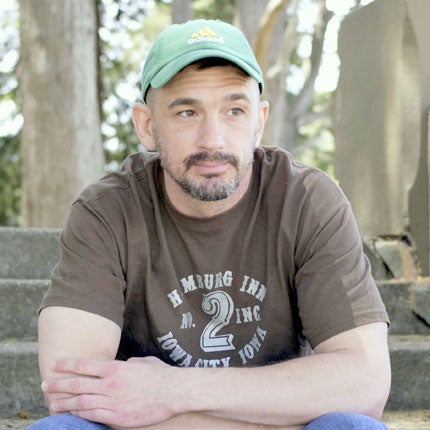The Great Night / A Better Angel, By Chris Adrian
The grief of child mortality, and the wonder of faeries in San Francisco

Chris Adrian is big in America. As a result of his three novels and a collection of short stories, The New Yorker has named him as one of their prestigious "20 under 40".
Now, in an attempt to "crash-land him on to the British literary scene", two of his books are being published simultaneously in the UK: A Better Angel, which contains nine of his short stories, and a novel called The Great Night, a work of magic realism based on A Midsummer Night's Dream.
One key to understanding Adrian's work (The New York Times's reviewer of The Great Night admitted to feeling "unsure of what has just happened ... and why") is to consider it through a biographical lens. Adrian is a Fellow in Paediatric Haematology-Oncology in San Francisco. He is also a theologian, having studied at Harvard Divinity School. This gives him, as he told The Paris Review recently, "some way to think about the suffering of children that does not make you want to kill yourself". Accordingly, his writing is almost exclusively concerned with hospitals, dying children, corporeality and existential sorrow, counterpointed with the supernatural and fabulous. The result is a beguiling, troubling and undeniably potent brand of fiction.
Of the two books, the novel is by far the more ambitious. A Midsummer Night's Dream has been reworked many times and one must admire Adrian's audacity for having a crack at it too. The Great Night reminds us that Lysander's pithy observation in Act I, Scene I that "the course of true love never did run smooth" is as true today as it was more than four centuries ago. But do we really need reminding?
Adrian sets his novel in Buena Vista Park in the Haight-Ashbury district of contemporary San Francisco. Titania and her faeries live in a network of catacombs under a hill, "just beyond the threshold of ordinary human senses". On the night in question, three humans, troubled by broken-heartedness, converge in the park and are pursued through the faerie palace's subterranean halls until they are dragged into a supernatural showdown.
From the start, it is clear that Adrian is bending Shakespeare's template to his own purposes. Adrian's Puck is no "merry wanderer of the night" but a terrifying shape-shifter who assumes the guise of the viewer's worst nightmare, telling his queen "I will eat you last". Similarly, Adrian's Titania experiences a markedly un-faerie-like grief – "a great gnawing sadness" – at the death of her mortal changeling. His writing is evocative and unsettling in equal measure, yet this seems to be more about the author exploring his own feelings about child mortality than creating anything truly new from the materials of one of the Bard's most popular plays.
Although the short stories collected within A Better Angel are not encumbered by an association with one of the greatest works of drama ever written, they nonetheless exhibit the same preoccupation with mortality and the supernatural. The opening stories give us a fiendish boy with a dead father, Martian brother and Speed Demon teacher; a ghost who watches hospital staff play about with blood; and a girl who kills small animals with a ceremonial dagger. Indeed, it is the insistence with which Adrian reiterates his themes that makes the book difficult to read cover-to-cover. Adrian gets under your skin and stays there. As Theseus puts it, "Merry and tragical! Tedious and brief! That is hot ice and wondrous strange snow."
Join our commenting forum
Join thought-provoking conversations, follow other Independent readers and see their replies
Comments
Bookmark popover
Removed from bookmarks